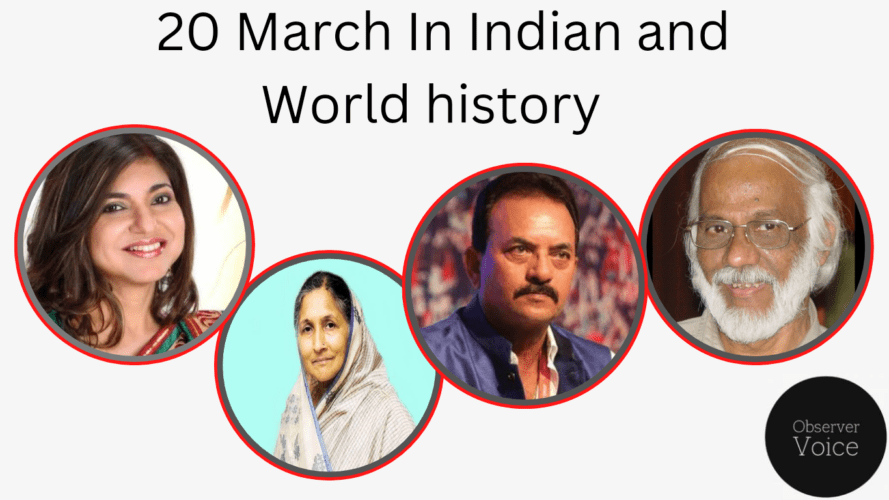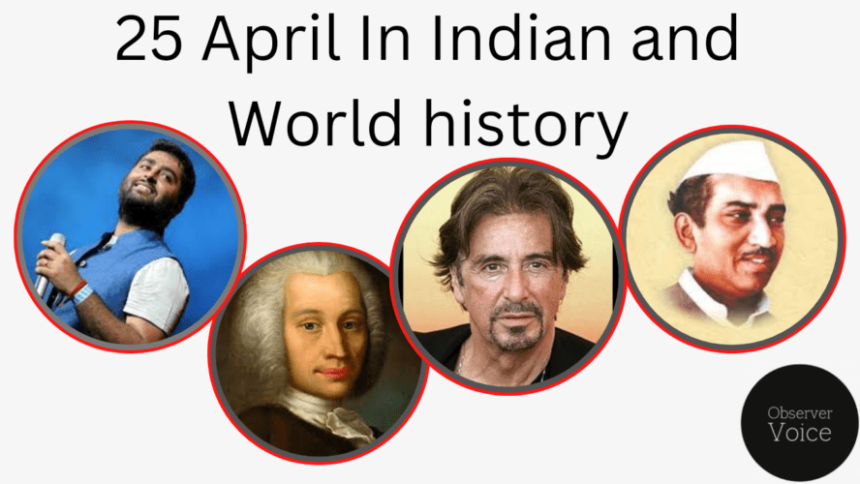March 20th is a date marked by a variety of significant historic events and special days across different cultures and regions of the world. From political milestones to cultural celebrations and scientific achievements, this day has witnessed a range of impactful moments throughout history. In this comprehensive overview, we will delve into some of the most notable events and observances that have occurred on March 20th, spanning various categories including politics, science, arts, and more.
1. Political Events:
- 1854: The Republican Party of the United States is founded in Ripon, Wisconsin. It emerged as a major political force in opposition to the expansion of slavery, eventually playing a key role in the election of Abraham Lincoln as President in 1860.
- 1922: The USS Langley (CV-1), the United States Navy’s first aircraft carrier, is commissioned. This event marked a significant advancement in naval warfare and the projection of military power across the world’s oceans.
- 1952: The United States Senate ratifies a peace treaty with Japan, officially ending the post-World War II occupation of Japan. This treaty helped establish a new era of diplomatic and economic relations between the two countries.
- 1974: The ruling military junta in Greece collapses, ending the “Regime of the Colonels” that had been in power since a coup d’état in 1967. This led to the restoration of democracy in Greece.
- 2003: The United States launches Operation Iraqi Freedom, invading Iraq with coalition forces and leading to the eventual overthrow of Saddam Hussein’s regime. This marked a significant moment in the ongoing conflict in the Middle East.
2. Scientific and Technological Advancements:
- 1602: The Dutch East India Company is established. It became one of the most powerful and influential trading companies during the Age of Exploration, shaping global trade and colonization efforts.
- 1852: Harriet Beecher Stowe’s influential anti-slavery novel, “Uncle Tom’s Cabin,” is published in book form for the first time. The novel had a profound impact on public opinion regarding slavery in the United States.
- 1899: At the Heidelberg University in Germany, physicist Wilhelm Conrad Roentgen delivers the first public lecture on X-rays. His discovery revolutionized medical diagnostics and laid the foundation for radiology.
- 1986: The Soviet Union’s Mir space station is launched into orbit. It would become the first modular space station and pave the way for international cooperation in space exploration.
- 2015: A total solar eclipse occurs, visible across parts of Europe, North Africa, and Asia. Solar eclipses continue to captivate scientists and the public alike, offering valuable opportunities for astronomical research.
3. Cultural and Artistic Significance:
- 1815: After escaping from exile in Elba, Napoleon Bonaparte returns to France, beginning his “Hundred Days” rule before his final defeat at the Battle of Waterloo. Napoleon’s legacy continues to influence politics and culture.
- 1854: The famous composer Richard Strauss is born in Munich, Germany. He would later become known for his operas and symphonic poems, leaving a lasting impact on classical music.
- 1922: The novel “Ulysses” by James Joyce is published in Paris. Regarded as one of the greatest works of modernist literature, it continues to be studied and celebrated for its innovative narrative style.
- 1969: John Lennon marries Yoko Ono in Gibraltar. Their relationship and artistic collaborations would become iconic in the realm of music and activism during the 1960s and beyond.
- 1995: The Tokyo subway sarin attack occurs, carried out by the religious cult Aum Shinrikyo. This tragic event highlighted the dangers of domestic terrorism and chemical warfare in modern society.
4. International Observances and Special Days:
- International Day of Happiness: Established by the United Nations in 2012, this day aims to promote happiness as a fundamental human goal and encourage efforts to improve well-being globally.
- World Sparrow Day: Started in 2010 by the Nature Forever Society of India in collaboration with various international organizations, this day raises awareness about the declining population of sparrows and promotes conservation efforts.
- French Language Day: Recognized by UNESCO, this day celebrates the French language’s cultural significance and promotes linguistic diversity and multilingualism worldwide.
- Great American Meatout: An annual event promoting plant-based diets and raising awareness about the environmental and health benefits of reducing meat consumption.
- World Oral Health Day: Led by the FDI World Dental Federation, this day focuses on promoting oral health awareness and encouraging preventive dental care practices globally.
March 20th holds a rich tapestry of historical events, cultural celebrations, and global observances that reflect humanity’s diverse experiences and aspirations. Whether it’s a political milestone, a scientific breakthrough, a cultural icon’s birth, or a day dedicated to promoting well-being and conservation, this date reminds us of the interconnectedness of our past, present, and future on a global scale.
March 20th holds significance in Indian history with various events spanning from political milestones to cultural celebrations. Let’s explore some key moments and observations related to India on this date:
1. Formation of the All India Forward Bloc (1939): On March 20, 1939, Netaji Subhas Chandra Bose formed the All India Forward Bloc (AIFB) after splitting from the Indian National Congress. Bose, a prominent leader in India’s struggle for independence, established the Forward Bloc as a socialist political party advocating for complete independence from British rule. The party played a crucial role in mobilizing support for the freedom movement.
2. Birth of Mrinal Sen (1923): Mrinal Sen, the renowned Indian filmmaker, was born on March 20, 1923. He was a pioneer of the parallel cinema movement in India, known for his socially relevant and thought-provoking films. Sen’s works often addressed themes of social inequality, political unrest, and human relationships, making a significant impact on Indian cinema.
3. Death of Firaq Gorakhpuri (1982): Raghupati Sahay, better known by his pen name Firaq Gorakhpuri, was a prominent Urdu poet and literary critic. He passed away on March 20, 1982. Gorakhpuri’s poetry reflected a deep understanding of human emotions, philosophical insights, and a profound love for language, earning him recognition as one of the leading poets of his time.
4. World Sparrow Day: While not specific to Indian history, March 20th is observed globally as World Sparrow Day. This day holds significance in India as well, where efforts are made to raise awareness about the declining sparrow population due to urbanization and environmental changes. Various organizations and individuals in India participate in activities aimed at conserving sparrows and their habitats.
5. Other Events: Apart from these significant events, March 20th is also a day of routine activities and developments in Indian society. It marks a day where people across the country engage in various cultural, social, and economic endeavors, contributing to the ongoing narrative of India’s progress and evolution.
Overall, March 20th in Indian history reflects a blend of political activism, cultural contributions, and environmental consciousness, highlighting the diverse facets of India’s journey as a nation and society.






